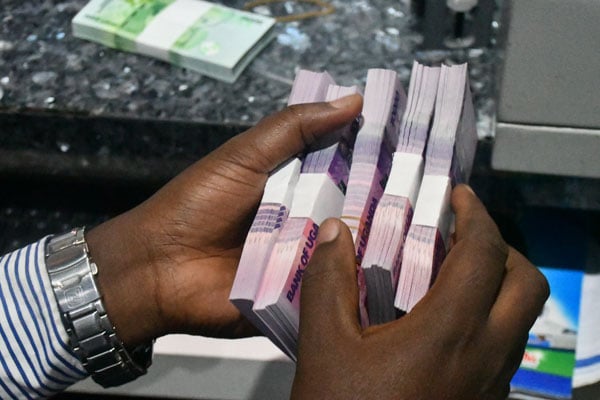Prime
Govt, borrowers share blame of high interest rates, says Ggoobi

Challenging. Access to credit in the private sector remains a challenge due to a number of issues, among which include high interest rates. Photo / Edgar R Batte
What you need to know:
- Mr Ggoobi says weak collateral, some untrustworthy borrowers and government’s increased domestic borrowing are some of the factors contributing to high interest rates
Permanent Secretary and Secretary to the Treasury Ramathan Ggoobi has said that both government and borrowers are to blame for Uganda’s high interest rates.
Speaking during the second National Microfinance and Savings Group Conference 2024 in Kampala, Mr Ggoobi said that whereas some government actions partly contribute to high interest rates, the blame is equally shared by borrowers, some of whom are not creditworthy, untrustworthy, and lack good quality collaterals against which loans are advanced.
For instance, he said, because government has been increasingly borrowing from the domestic market, banks have prioritised lending to government, while the private sector players who seek to access credit are subjected to high interest rates.
However, Mr Ggoobi noted that government was working on a plan to mitigate domestic borrowing by focusing its attention on local revenue mobilisation, which would increase Uganda’s tax-to-gross-domestic ratio to at least 16 percent from the current 14 percent.
“Our long-term strategy is to mobilise our revenue from taxes and reduce internal borrowing. We are also improving traceability of the borrowers by introducing national identification [and improving the quality of collateral by] improving the land register,” he said.
“Us as borrowers, we are not trustworthy. In most cases, credit is about traceability and the quality of the collateral. Banks like it when government borrowing increases because they have a better borrower,” Mr Ggoobi added, noting that financial institutions see government as a non-risk borrower compared to many private sector borrowers that easily default.
While addressing the NTV-Absa Post Budget Dialogue last month, Mr Ggoobo said banks were sitting on about Shs27 trillion, noting that government was only borrowing the excess.
However, he also indicated that government, despite public pleas, had continued to borrow from the domestic market “to save some of these banks”.
The share of domestic debt has been growing over time. As of December 2023, the stock of public debt rose to Shs93.38 trillion, of which external was Shs55.37 trillion, while Shs.38 trillion was domestic debt.
Mr Ggoobi also indicated that government has put in place more measures to improve creditworthiness by working with Uganda Registration Services Bureau to register business borrowers, which will eventually improve the quality of information about borrowers.
“Interest rates have reduced. 10 years ago there was an average lending rate of 25 percent, today the average prime lending rate is a 17.7 percent. This is still high, [but] we are fighting to bring it to a single digit and that can be done by addressing the challenges,” he said.
The second National Microfinance and Savings Groups Conference 2024 sought to leverage collaborations, partnerships, and promotion of a savings culture to foster socio-economic transformation.
Monitoring borrowers
State Minister for Microfinance Haruna Kasolo, urged banks to monitor people who they lend money instead of waiting for them to default.
“Banks should not wait for businesses to collapse. They collect 2 percent of the loan for monitoring. They should use it to visit and advise businesses rather than celebrating when they fail for them to auction mortgaged properties,” he said, noting that government has through the Parish Development Model extended Shs2 trillion with each PDM Sacco across the country.
Mr Kasolo also indicated that government last year launched the Second National Financial Inclusion Strategy (2023-28) to combat poverty and spur economic growth through accessible financial services.
“This conference marks a crucial step in promoting collaboration and knowledge exchange within the microfinance sector, paving the way for a more inclusive and digitally empowered financial ecosystem,” he said.




